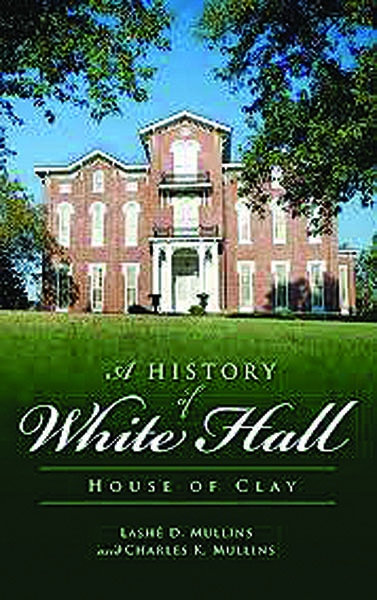The Lion of White Hall, Part 2 of 4
From the Mountains

White Hall is the home of Cassius Marcellus Clay.
He was a son of a wealthy Kentucky land and slave owner. He became one of the most disliked men in Kentucky because of his outspoken views as an anti-slavery crusader. Strife and turmoil followed Clay throughout his life.
His introduction to the code duello (dueling) began when a Louisville doctor by the name of Declarey wrote a defamatory letter to his prospective mother-in-law. This was just a few days before he was to wed. The inflamed Clay traveled to Louisville to confront the man.
“When I arrived in Louisville, I stopped in a cooper’s shop and bought a tough hickory cane about the same size as your finger,” he said. (Coopers make barrels but often fill orders for other wood product needs.)
“Then I asked about Dr. Declarey and went looking for him.”
Clay found him on one of the main streets of Louisville and asked the doctor to join him around the corner on a quieter street where they could talk privately about a mutual friend. Gen. James S. Rollins, a friend of Clay, accompanied him on the trip to Louisville but stayed behind at the street corner to deter anyone from interrupting Clay’s meeting with the doctor.
“‘Dr. Declarey, I am Cassius Clay, about whom you wrote in this letter,’” Clay said to him. “‘I need to have an explanation about this.’ I showed him the letter but he said nothing. He was unable to give the remotest reason for it, so I raised my hickory cane and began to hit him with it. Several people heard the commotion and got by Gen. Rollins, but he ran up and pretended to separate us. He was actually keeping the crowd back until I gave him a good caning.
“I told him where I could be found in Louisville, as I expected Declarey would challenge me to a duel. I was not disappointed. A few hours after the caning, I got a challenge. We would meet just across the river in Indiana the next morning.”
There was a large crowd of Declarey’s friends and associates there when Clay and Gen. Rollins arrived at the dueling grounds the next morning. Rollins refused to let Clay proceed because it was highly likely someone in the crowd would do something to affect the outcome. He discussed another site with Dr. Declarey’s second, but the crowd showed up at the alternate site as well. There were many duels in that era, but they were usually more private in order to avoid prosecution from the law or protect them from a third party there to affect the outcome.
“Our wedding was scheduled for the next day; I didn’t want to cancel it or break up my honeymoon,” Clay said later in life. “Declarey said he would cowhide me.
“I went to his hotel dining room and waited all evening, but he never came in for dinner. After that I remained in the lobby, leaning against a pillar until I heard someone approaching near me. It was Declarey. When he saw me he was as pale as a ghost. He wouldn’t look me in the eye. Without saying a word he turned and walked out of the hotel.”
Clay saw that he didn’t intend to fight, so he went back home. Within two or three days, he learned that Declarey had committed suicide by cutting his arteries.
Clay explained that it was strange that a man could have the courage to commit suicide but not have the courage to fight. He said that happened other times in his life.
“Tom Marshall headed the mob that tried to kill me and destroy my newspaper office,” he recalled in comments about his life. Marshall had been one of his enemies for years.
“I had two four-pound brass cannons in my office, loaded with shot and nails, facing the door,” Clay said. “I also had a keg of powder, and if my enemies captured my office, I expected to send them into eternity.”
Clay didn’t have time to place his defensive scheme into motion. The mob attacked and seriously wounded him. His printing equipment was stole, but found later in Cincinnati. Rather than returning it to Lexington, Clay opened the headquarters for his anti-slavery newspaper, the True American, in that Ohio city.
Not long thereafter, Clay entered the Mexican War as a captain, and Tom Marshall was the captain of another company.
“He was drunk about half the time,” Clay said. “He thought he could say mean things without being accountable.
“I expected to have a duel with him, and had my sword sharpened until it had an edge like a razor. One day, he came to my camp and made some insulting remark. I drew my sword and told him,
“Tom Marshall get down from your horse,” Clay said. “We’re going to fight it out.”
“Not now, another time,” Marshall answered hoping that would appease Clay.
“The time for men who wear swords is now,” Clay said adamantly. “You chose your time to mob me at Lexington. You are a coward if you don’t accept my challenge.”
Copyright 2023 Jadon Gibson. Code duello appears to be the remedy of action in the next issue. Jadon Gibson is an Appalachian writer from Harrogate. His stories are both historic and nostalgic in nature. Thanks to Lincoln Memorial University, Alice Lloyd College and the Museum of Appalachia for their assistance.

